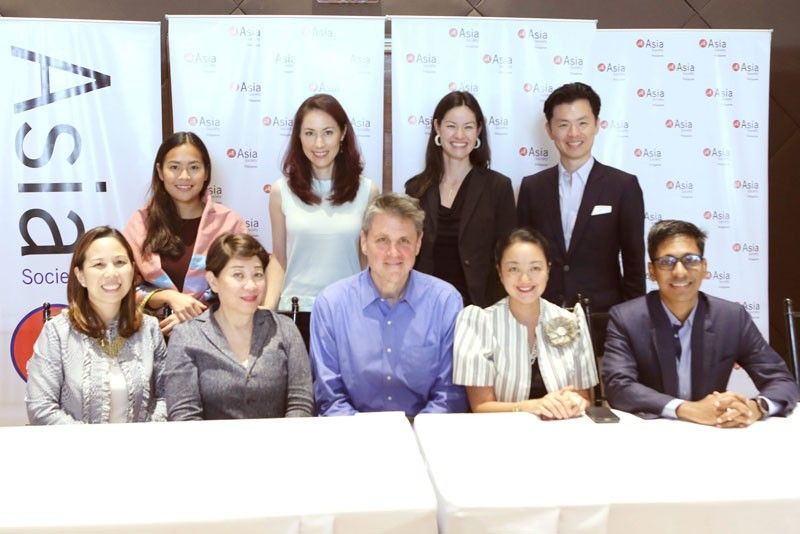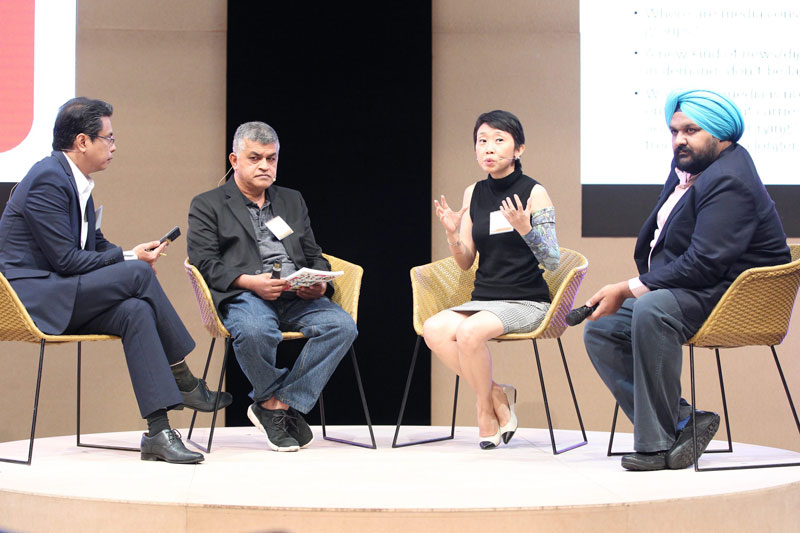Free press & young leaders in the age of fake news

‘Nine out of 10 times, the term fake news is used inaccurately. It may be the worst export from the United States right now,’ says Asia Society EVP and former ABC News journalist Tom Nagorski.
MANILA, Philippines — CNN is suing US President Donald Trump and his top aides for revoking its reporter Jim Acosta’s access to the White House; in Acatlan, Mexico, two men were dragged from police custody and burned alive by a mob that mistook them for child kidnappers from messages passed around on Whatsapp.
In the Philippines, the number of fake news sites and blogs has risen since the 2016 presidential elections; fake endorsements from world leaders like Pope Francis.
“Fake news,” a term that wasn’t really used before 2016 (propaganda and lies were the preferred words), became the word of the year in 2017.
It is against this background that young leaders are emerging around the world every day. Asia Society’s Asia 21 program crosses geographic and sectoral boundaries. It convenes young leaders for discussions and collaboration, who then work for maximum impact. Local Asia 21 chapters have sprouted in some of the toughest parts of Asia, where people are anxious for the connections and counsel that the Asia 21 network provides
Free press in the age of fake news was also the topic of one of many talks at Asia Society’s 21 Young Leaders Summit, which opened on Thursday at Maybank Performing Arts Theater in BGC.
The summit is the culminating event in the annual Asia 21 Young Leaders program by Asia Society, the leading educational, policy and cultural organization dedicated to promoting mutual understanding and strengthening partnerships between Filipinos, other Asian countries and the United States.
“We are incredibly honored to host this year’s Asia 21 Young Leaders Summit, enabling us to demonstrate the depth of our history and colorful breadth of Filipino culture, our dynamic economy and vibrant civil society,” said Doris Magsaysay Ho, chairwoman of Asia Society Philippines and global trustee of Asia Society.

Business World editor in chief Robby Alampay moderates the fake news session with speakers Zulkiflee Anwar Haque, Malaysian political cartoonist; Johanna Son, regional director, Inter Press Service Asia-Pacific; Tridivesh Singh Maini, Jindal School of International Affairs
“In today’s turbulent and frequently confusing political and economic environment, strengthening linkages between peoples is more important than ever before,” said Suyin Liu-Lee, Asia Society Philippines executive director. “Building collaborations and opening new doors for people to be more effective and impactful agents of positive change is at the heart of Asia Society Philippines’ mission.” Suyin also mentioned Asia Society’s role in bringing stakeholders together in terms of policy discussions.
Asia Society executive vice president and former ABC News journalist Tom Nagorski, who has won eight Emmys during his three decades in journalism, was asked about the emergence of populist leaders and fake news.
Nagorski said the common thing between fake news, turbulence and populism around the world is social media. “Nine out of 10 times, the term ‘fake news’ is used inaccurately. What’s so disturbing to me is that we now see the phrase migrating around the world. It may be the worst export from the United States right now.”
In the Philippines, the US and elsewhere, politicians routinely accuse journalists of reporting fake news when the content is critical of them.
“In terms of populism, we have a politician who, whatever you think of him, pretty effectively plays the situation and has tapped into something that his opponents really didn’t recognize. I don’t think that most Americans are that nationalistic or populist. Why has it migrated around the world? Ignorance and poor education are some of the factors.”
So has Asia Society changed its leadership program to recognize the present state of government leadership around the world?
“Not in response to politics,” Nagorski said. “There are a lot of institutions that have received an increase in attention and interest because of what is happening, and ours is one of them. Maybe you can call that as a silver lining in some cases. In my old profession, people were writing the obituaries for newspapers, but the interest and enthusiasm, despite what our president says about the leading news organizations, are through the roof. Digital subscription to the New York Times is higher than ever. Civil society organizations are experiencing — there’s a crude term for it — ‘the Trump bump” because people are confused about what’s going on. Also, as Trump and others are tearing apart the old paradigms and assumptions, which he promised to do, I think the need for organization that look at policy questions is greater than might have been if someone else had won the election.”
At the Free Press in the Age of Fake News session, which was moderated by Business World editor in chief Robby Alampay, Malaysian political cartoonist Zulkiflee Anwar Haque, also known as Zunar, shared how he was arrested six times for his cartoons.
One of his arrests was ordered by the chief of police through Twitter, something Zunar manages to insert (and insult) in every cartoon.
Asked about the proliferation of fake news and its consumption by readers who don’t sift through facts, Zunar says, “This is temporary. When people are hungry and they see food, they will eat it all like in a buffet, but the next they will choose. It’s the same with the Internet.”















